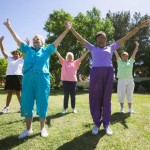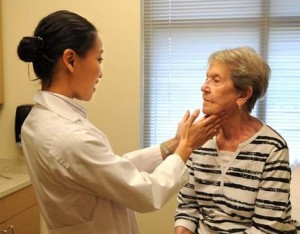 A new study suggests that older people who occasionally forget some things or memories should not be terrified that they may have Alzheimer’s as it is something reversible.
A new study suggests that older people who occasionally forget some things or memories should not be terrified that they may have Alzheimer’s as it is something reversible.
Dr. Eric Kandel, lead author of the 2000 Nobel Prize research which identified the molecular basis of age-related memory loss, and his team studied eight human brains from the New York Brain Bank at Columbia University donated by people aged 33 to 88. All of them do not have brain disease when they died.
The researchers removed two structures in the hippocampus, the portion of the brain believed to be the center of the emotion, memory, and automatic learning. These structures are the dentate gyrus (forms new intermittent memories, unaffected by Alzheimer’s) and the entorhinal cortex (stores the memory, linked to Alzheimer’s).
Kandel’s team observed the genes active in each structure and noticed that the 17 genes present in the dentate gyrus decrease as the brain age increase. Most significant gene they found was RbAp48 which distinctly dropped to 50 percent of its original number as a person age. They looked at 10 more human brains with ages between 41 to 89, as well as old mice, to verify their conclusion. The result remained the same.
Their final analysis aimed to link the said protein to age-related memory loss by extracting it from young mice through genetic engineering. The results show a decline in memory comparable to mice four times their age. The mice were placed in a water maze to measure memory performance. Afterwhich, they injected the protein back to the mice which immediately restored their cognitive performance.
"With RbAp48, we were able to reverse age-related memory loss in the mice," Dr. Kandel wrote in the study. "Unlike in Alzheimer's, there is no significant cell death in age-related memory loss, which gives us hope it can be prevented or reversed."
However, the researchers admitted that they couldn’t explain yet how the protein RbAp48 affects the memory. They believe though that this discovery may help in finding a way to treat or prevent Alzheimer’s.
By Julie S | Aug 29, 2013 09:35 AM EDT
The study was published in the online journal Science Translational Medicine.









